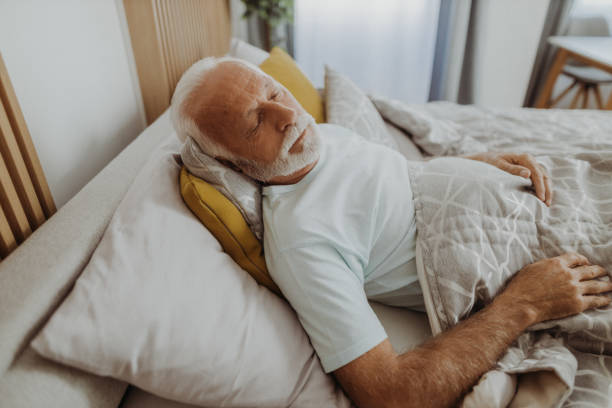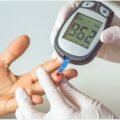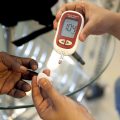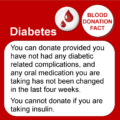
Low blood sugar, medically known as hypoglycemia, is a condition characterized by an abnormally low level of glucose (sugar) in the bloodstream. This condition is most commonly associated with diabetes, but it can occur in individuals without diabetes as well.
While hypoglycemia is typically manageable, it raises concerns about the potential risks associated with nocturnal episodes. One question that often arises is, “Can you die from low blood sugar in your sleep?” This article aims to explore the answer to this question, shedding light on the causes, symptoms, and management of nocturnal hypoglycemia.
Definition of Hypoglycemia
Hypoglycemia is defined as a blood sugar level below 70 milligrams per deciliter (mg/dL) in individuals without diabetes. However, the threshold for defining hypoglycemia can be different for those with diabetes, as they may experience symptoms at higher blood sugar levels due to their treatment regimen and individual sensitivities.
Hypoglycemia can occur due to various factors, including:
- Medications: Some medications, particularly insulin and certain oral hypoglycemic agents, are designed to lower blood sugar levels. When not taken correctly or when dosage is miscalculated, they can lead to hypoglycemia.
- Delayed or missed meals: Not eating on time or skipping meals can result in low blood sugar levels, especially for individuals with diabetes who rely on insulin or other medications to manage their blood sugar.
- Excessive physical activity: Engaging in intense exercise without adjusting insulin or medication doses can lead to hypoglycemia.
- Alcohol consumption: Drinking alcohol can impair the liver’s ability to release stored glucose, which can contribute to hypoglycemia.
- Infections or illnesses: Infections and certain medical conditions can cause an increased demand for glucose, making it challenging for the body to maintain a stable blood sugar level.
- Hormonal imbalances: Some hormonal disorders, such as adrenal insufficiency or pituitary gland disorders, can disrupt glucose regulation.
Can You Die from Low Blood Sugar in Your Sleep?
Yes, but the risk of dying from low blood sugar in your sleep, also known as nocturnal hypoglycemia, is relatively low. Recent reports suggest that between 4% and 10% of deaths in patients with type 1 diabetes may be attributed to hypoglycemia, highlighting the sobering possibility that 1 in 25 to 1 in 10 patients with type 1 diabetes may succumb to this iatrogenic condition. To better understand the potential dangers, it’s essential to delve into the factors that contribute to this risk and how they can be mitigated.
- The Severity of Hypoglycemia: The risk of death from nocturnal hypoglycemia increases with the severity of the episode. Mild hypoglycemia, where blood sugar levels are slightly low but not critically so, is less likely to result in a life-threatening situation. However, severe hypoglycemia with very low blood sugar levels can be extremely dangerous, potentially leading to unconsciousness and, in rare cases, death.
- Duration of the Episode: Prolonged periods of untreated hypoglycemia are more dangerous. When blood sugar levels remain low for an extended time, the brain and other vital organs may not receive enough glucose, potentially leading to severe complications.
- Individual Factors: The risk of death from nocturnal hypoglycemia can vary between individuals. Factors such as age, overall health, and the presence of other medical conditions can influence the outcome. For instance, individuals with underlying heart conditions may be at a higher risk of experiencing fatal arrhythmias during hypoglycemic episodes.
- External Factors: Certain external factors can worsen the risk of nocturnal hypoglycemia. For example, drinking alcohol before bedtime, intense physical activity close to bedtime, or taking a higher-than-necessary dose of insulin or medication can increase the chances of a hypoglycemic event during sleep.
- Coexisting Medical Conditions: People with diabetes often have other conditions, such as neuropathy, that can make them less aware of the warning signs of hypoglycemia, increasing the risk of complications during sleep.
In most cases, hypoglycemic episodes are not fatal, and the body has built-in mechanisms to respond to low blood sugar. When blood sugar drops, the body releases hormones like glucagon and epinephrine to raise it back to a safe level. However, when these mechanisms fail or are overwhelmed, the situation can become life-threatening.
Symptoms of Nocturnal Hypoglycemia
Recognizing the symptoms of nocturnal hypoglycemia is crucial for preventing potential complications or addressing them promptly. Since these symptoms may manifest while you are asleep, it’s essential to educate yourself and your loved ones on what to watch for. Common symptoms include:
- Nightmares or night sweats: Some people experience vivid nightmares or drenching night sweats when their blood sugar drops during sleep.
- Restlessness and tossing and turning: Frequent waking, tossing, and turning can be a sign that your body is responding to low blood sugar.
- Hypoglycemic seizures: In severe cases, hypoglycemia can lead to seizures. These seizures are not the same as epileptic seizures and are typically more prolonged. They can be life-threatening if not managed promptly.
- Unconsciousness: The most extreme and dangerous symptom of severe hypoglycemia is a loss of consciousness. When this occurs during sleep, it can be particularly risky.
- Confusion upon awakening: People who experience nocturnal hypoglycemia may wake up confused, disoriented, or with a feeling of extreme drowsiness.
Preventing Nocturnal Hypoglycemia
Prevention is the best approach to managing the risk of nocturnal hypoglycemia. Here are some strategies that can help:
- Regular Monitoring: Frequent monitoring of blood sugar levels, especially before bedtime, can help identify potential issues before they become severe.
- Consistent Meal Planning: Eating regular meals and snacks at scheduled times can help maintain stable blood sugar levels.
- Adjust Medications: Work closely with a healthcare provider to ensure that insulin or other glucose-lowering medications are appropriately dosed and timed to match your activity level and dietary habits.
- Avoid Alcohol: Limit or avoid alcohol consumption, especially close to bedtime, as it can increase the risk of nocturnal hypoglycemia.
- Bedtime Snack: A small, balanced snack before bedtime can help stabilize blood sugar levels during the night. Consider options like a piece of whole-grain bread with peanut butter or a small serving of yogurt.
- Use Continuous Glucose Monitoring (CGM): For individuals with diabetes, CGM devices provide real-time data on blood sugar levels and can alert users to potential hypoglycemic events.
- Hypoglycemia Awareness Training: Some individuals with diabetes may benefit from hypoglycemia awareness training (HAT) to recognize and respond to low blood sugar effectively.
- Inform Loved Ones: Make sure that family members or roommates are aware of your condition and know how to assist in the event of a hypoglycemic episode.
Management of Nocturnal Hypoglycemia
If you suspect or experience nocturnal hypoglycemia, there are steps you can take to manage the situation:
- Consume Sugar: If you wake up with symptoms of hypoglycemia, have a source of fast-acting carbohydrates, such as a small glass of fruit juice, a few glucose tablets, or candy.
- Recheck Blood Sugar: After consuming sugar, wait for about 15 minutes and recheck your blood sugar levels to ensure they are rising.
- Adjust Insulin or Medications: Discuss your experience with your healthcare provider, as they may need to adjust your insulin or medication regimen to reduce the risk of future nocturnal hypoglycemic events.
- Consider a Continuous Glucose Monitor: Continuous glucose monitoring can provide valuable information on your blood sugar trends during sleep, helping you and your healthcare team make informed decisions about your treatment plan.
- Seek Medical Attention: If the hypoglycemic episode is severe and you lose consciousness or have a seizure, it’s crucial to seek immediate medical attention. Hypoglycemia can be life-threatening when it reaches this level of severity.
The Role of Glucagon in Managing Severe Hypoglycemia
Glucagon is a hormone produced by the pancreas that plays a crucial role in raising blood sugar levels. It acts in opposition to insulin, which lowers blood sugar levels. For individuals at risk of severe hypoglycemia, particularly those with diabetes, having a glucagon emergency kit on hand can be a lifesaver.
A glucagon emergency kit contains a dose of glucagon in a form that can be easily administered to someone experiencing severe hypoglycemia, especially if they are unconscious. When administered, glucagon quickly raises blood sugar levels, potentially preventing a life-threatening situation.
It’s important for individuals and their loved ones to be trained on how to use a glucagon kit and to keep it readily available, as prompt administration can be critical in emergencies.
Conclusion
While the risk of dying from low blood sugar in your sleep is relatively low, it is not non-existent, especially when severe hypoglycemia goes untreated. It is essential for individuals with diabetes or those at risk of hypoglycemia to take preventive measures, be aware of the symptoms, and have a plan in place to address potential nocturnal episodes. Regular monitoring, consistent meal planning, and open communication with healthcare providers are crucial elements in managing this condition and reducing the risk of severe nocturnal hypoglycemia. Additionally, having a glucagon emergency kit can be a life-saving tool in the event of a severe hypoglycemic emergency.





